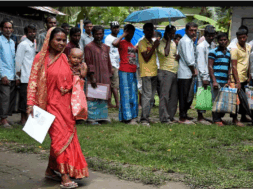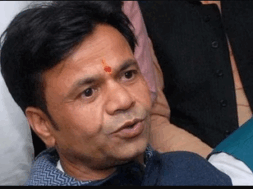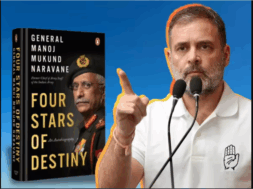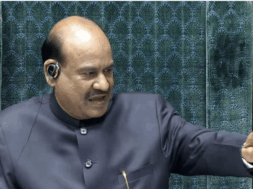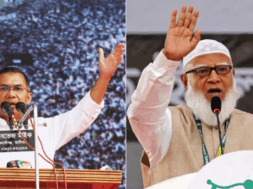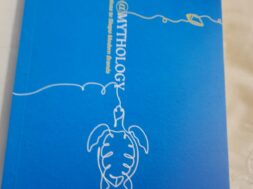
SC Refuses to Delete Adverse Remarks against Gujarat Government in Bilkis Bano Case
Manas Dasgupta
NEW DELHI, Sept 26: In a setback of sorts to the Gujarat government, the Supreme Court on Thursday dismissed its plea seeking a review of the court’s verdict which contained certain observations against the State and refused to remove the adverse comments made in its order related to the release of 11 convicts in the Bilkis Bano rape and murder of her seven family members during the infamous 2002 riots in the state.
The state had requested removal of certain remarks against it when the top court overruled the premature release of 11 men convicted of raping Bilkis Bano and killing her family during the 2002 Gujarat riots. The Gujarat government petition had also flagged the court’s comment that it had “acted in collusion and colluded with the convicts”. The state government argued the comment was inappropriate and against the record of the case, and also biased against the petitioner.
Rejecting the state government’s petition, a bench of Justices B V Nagarathna and Ujjal Bhuyan said, “Having carefully gone through the Review Petitions, the order under challenge and the papers annexed therewith, we are satisfied that there is no error apparent on the face of the record or any merit in the Review Petitions, warranting reconsideration of the order impugned. The Review Petitions are, accordingly, dismissed,” the Bench said.
The Gujarat government in its plea had said the apex court’s observation in the January 8 judgment, holding the state guilty of “usurpation of power” and “abuse of discretion” for complying with an order of another top court bench, was an “error apparent on the face of the record” primarily on three grounds. The bench also rejected the application for listing review petition in open court.
The top court, in July, had dismissed interim bail petitions filed by two convicts – Radheyshyam Bhagwandas and Rajubhai Babulal. They claimed an “anomalous” situation had arisen; i.e., two different benches of the top court had taken opposite views on the state’s early release policy. The court, though, junked that plea.
In January the Supreme Court said the 11 men – who were released by the Gujarat government for “good behaviour” – had to return to jail. The state government was not competent to release the men, the top court said in a landmark order on a decision that had triggered public fury. “The exemption order lacks competence,” the Supreme Court said, berating the Gujarat government for passing such an order “without application of mind.”
The court had also noted that convicts could only be released by the state that tried them in the first place; in this case, that state was Maharashtra. “The exercise of power by the state of Gujarat is an instance of usurpation of power and abuse of power,” the court had said.
In passing this order the court also came down heavily on its judgment of May 2022, delivered by Justice Ajay Rastogi (retired), which allowed the convicts to appeal to the Gujarat government for their early remission. The convicts got the order “through fraudulent means”, the judges said. They also noted that the Gujarat government should have sought a review of the 2022 order.
The convicts were released by Gujarat on the basis of an obsolete 1992 remission policy, which has since been superseded by a law in 2014 that bars the release of convicts in cases of capital offence. The convicts were given a hero’s welcome, with garlands and sweets, and they were seen sharing stage with a BJP MP and an MLA. Convict Radheshyam Shah even started practising law, the Supreme Court was told during an 11-day hearing last year of petitions, including one by Bilkis Bano.
Bilkis Bano was 21 and five months’ pregnant when she was gang-raped while fleeing during the communal riots that broke out after the fire in Sabarmati Express in which 59 kar sevaks were killed. Her three-year-old daughter was among the seven family members slaughtered in the riots.
Meanwhile, another bench of the apex court on Thursday postponed till January 15 the hearing on the appeals filed by the Gujarat government and several other convicts in the 2002 Godhra Sabarmati Express train burning case at the request of the government pleader. A bench of Justices J K Maheshwari and Rajesh Bindal also made it clear that no adjournment would be given in the matter on the next date of hearing.
On February 27, 2002, 59 people were killed when the S-6 coach of Sabarmati Express was burnt at Gujarat’s Godhra, triggering riots in the state. Several appeals have been filed in the top court challenging the October 2017 verdict of the Gujarat High Court which had upheld conviction of several convicts and commuted the death penalties of 11 to life term.
The Gujarat government had in February last year told the top court that it would be seeking award of death penalty to the 11 convicts whose sentences in the case were commuted to life imprisonment by the high court. The batch of pleas came up for hearing on Thursday before the top court.
Gujarat government’s counsel Swati Ghildiyal requested the bench to post the matter for hearing on some other day as she was to argue before another bench of the top court in a death penalty-related matter. “We have to first understand what are the cases of individuals. What is the prosecution’s case. Then we have to ascertain the roles,” the bench observed, adding that hearing in the matter will take at least three days.
“Now we will not adjourn it on the next date,” the bench said. “At the request of Swati Ghildiyal, counsel appearing for the State of Gujarat, list on January 15, 2025,” it said.

